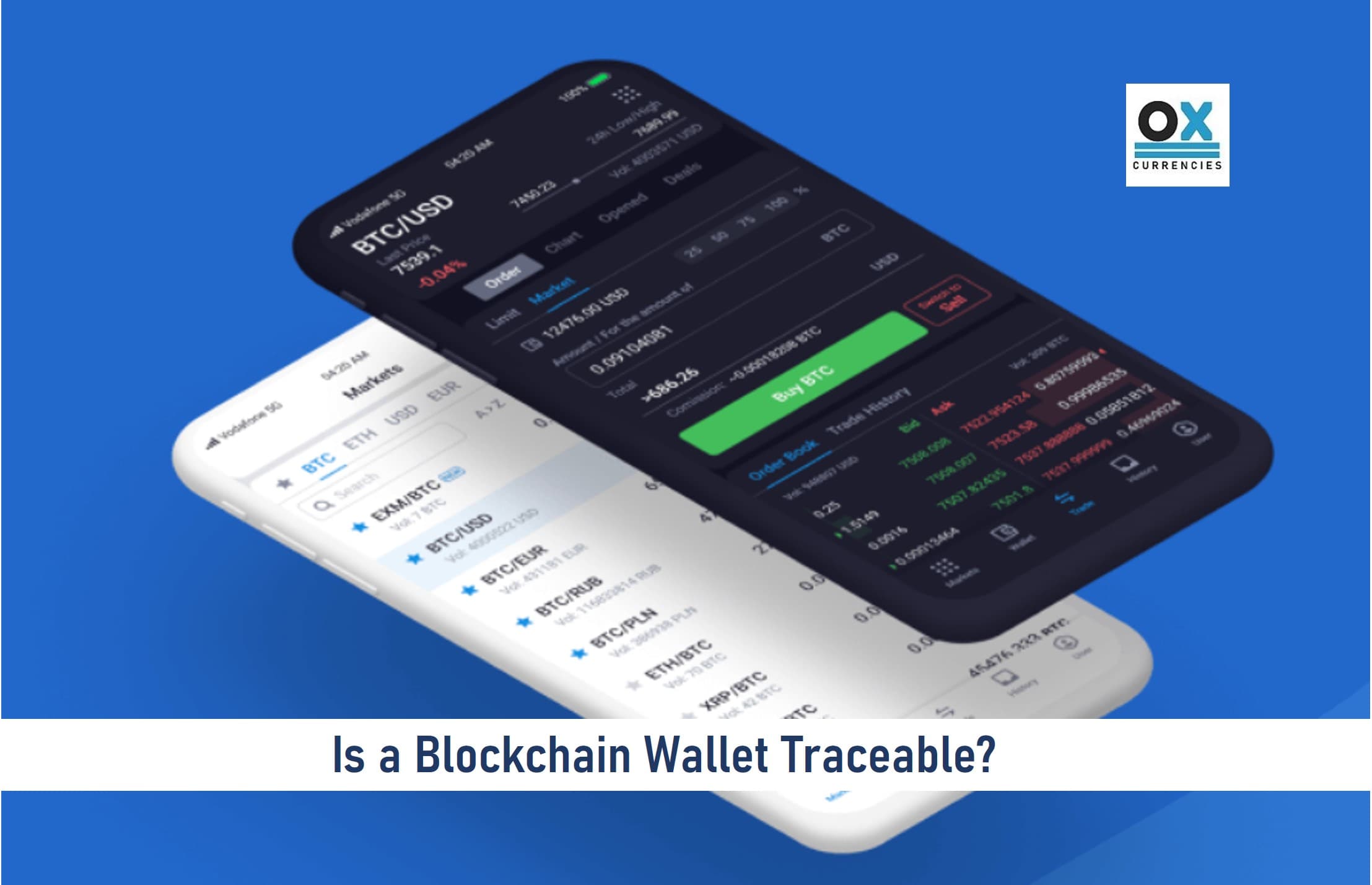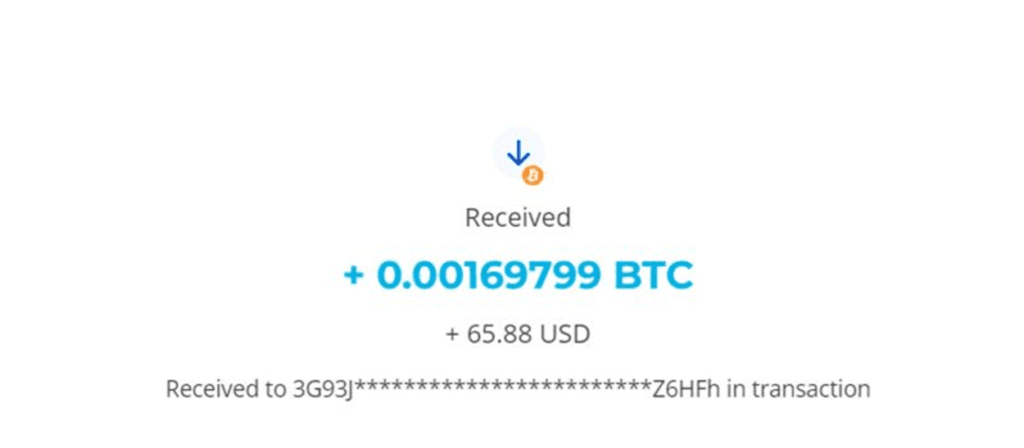
Is A Blockchain Wallet Traceable?
The uncertainty about the traceability of soft wallets triggers a question. What if the custodian or exchange hosting the wallet suddenly vanishes or is hacked?
It’s worth noting that all transactions and wallet addresses are recorded on the public blockchain, whether it’s a bitcoin wallet or any other altcoin-compatible wallet.
This means that all previous transactions saved on the public ledger remain even if the wallet gets missing or hacked.
Wallets in themselves do not provide any personal information that might harm you but provide a solid background for further investigations or inquiries.
I’ll provide insights into how a blockchain wallet works and simultaneously provide an answer to the question of the traceability of a blockchain wallet. Keep reading!
Key Takeaways
• Cryptocurrencies are built on a blockchain system, making it pretty difficult for the system to track the owner or user’s identity except with the help of blockchain experts.
• All completed transactions are recorded in their respective blockchain known as the public ledger.
• Transfer of funds in blockchain networks isdecentralized by nature.
SEE ALSO: Are Blockchain Wallets Non-Custodial?
SEE ALSO: What Are The Different Prefixes For Crypto Wallet Addresses?
SEE ALSO: What You Should Know About Bitcoin Address Formats
What is a Blockchain Wallet?
Generally speaking, a blockchain wallet refers to a digital wallet that stores, manage, and transfers your favorite blockchain-based cryptocurrencies like Bitcoin, Ether, Solana, Tron, Avalanche, Cosmos, etc.
With a blockchain wallet, you can initiate and complete payments, this also applies to receiving, swapping, and staking in some cases. One major feature is that transactions are encrypted with your identity and privacy protected.
You can access your wallet from anywhere in the world as long as you have access to an internet connection. Known blockchain wallets include; Coinbase, Electrum, Bitcoin paper wallet, etc.
Signing up with one is free. You will be required to submit your email address and password for account management and privacy, after which the system will send you a mail to verify your account.
Once the verification is complete, you are now given a wallet ID, which is unique to you alone.
This wallet ID is similar to a bank account number. On the blockchain wallet interface are your most recent transactions and the current wallet balance of your crypto assets.
You can also view trends and check the worth of each fund in its local currency.
Is a Blockchain Wallet Traceable?
Yes, a blockchain wallet is traceable because any wallet address used in a transaction can be traced mostly through forensic analysis.
Each blockchain wallet keeps a record of all the transactions for each address. When you create a wallet, you are given an address that allows you to send and receive funds.
The address may seem like a long string of letters and numbers, but each of them is unique to a wallet.

Even though any transaction made to that address can be used in tracing the wallet but to do so, you will require the services of experts in blockchain forensics.
Examples of such companies are Chainalysis, a team of professional investigators, cybersecurity experts, and data engineers that have been tracing and identifying wallets linked with criminal activities for some years now.
With their well-equipped blockchain analysis software and other online, public clues, they could link transactions to real identities. One of their most famous works was helping the FBI trace and identified two rogue agents who had been stealing Bitcoins from an online drug market operator’s wallet.
Features of a Blockchain Wallet
- Ease of use: A blockchain wallet functions just like any other wallet or software you use in your everyday transactions.
- Low transaction fees: The cost of performing transactions on blockchain wallets is little compared to traditional banks.
- Support multiple coins: It allows you to perform transactions from anywhere in the world without territorial barriers or intermediaries.
- Highly secure: Compared to traditional banks, you don’t have to worry about thieves breaking in and stealing all your funds as long as you keep your private keys safe.
SEE ALSO: What You Should Know About Bitcoin Address Formats
Frequently Asked Questions (FAQs)
Q1. Is blockchain a safe wallet?
Of course, it is. Blockchain wallets are safe and secure as they are cryptographically signed; that is, your private keys protect your assets.
So, as long as your private keys are intact, your crypto assets are safe.
Q2. What happens if blockchain goes down?
With the advent of a blockchain going down due to an internet shutdown.
For instance, the bitcoin blockchain will immediately stop recording all bitcoin transactions which will ultimately lead to a temporary break in transaction processing.
During that period of shutdown, no user will be able to perform any bitcoin transaction, but once it’s back online, transactions will begin immediately.
Once the network is online and active, it will resume transaction processing if the transactions are consistent.
Otherwise, users will be required to update their blockchains or, in extreme cases, might choose to opt out of the blockchain network.
Q3. Can I use blockchain without verification?
No, you can’t because verification is necessary to confirm the ownership of such an account making the transaction.
Q4. Can a bitcoin wallet be traced?
Yes, a bitcoin wallet can be traced because each Bitcoin can be traced and tracked from its initial wallet to the present one, and each transaction is stored in the blockchain, which is a public ledger.
But this blockchain can only store the public addresses or these wallets and not the real-world identities of their owners. So it can be traced but doesn’t guarantee the real identities of the owners
Final Thoughts
As you have seen in this article that a blockchain wallet is traceable, but an ordinary wallet user cannot trace it. Rather, it will require the service of IT and cybersecurity experts who are knowledgeable and well-versed in blockchains.
Finally, be careful about who can access the private keys to your blockchain wallet to avoid scammers or hackers getting access to your account and stealing all your assets. Also, ensure you keep those private keys in a safe and secure location to easily restore your account in case your device gets lost or stolen.
Read More




